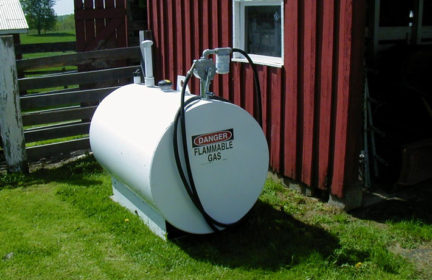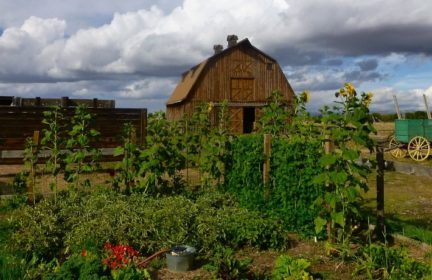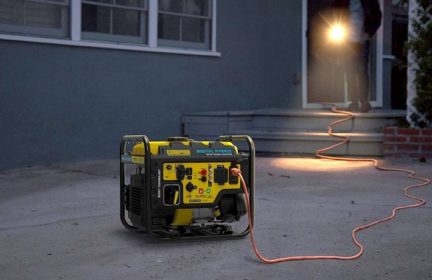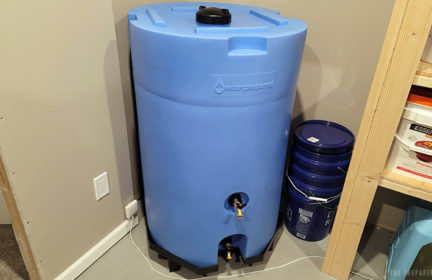Homesteading – how much does it cost?
Homesteading and equivalent self-sufficient scenarios where you have a few acres, dedicated water source, and the intention of being able to produce at least some of your own food/fuel seems to be one of the gold standards for practical, attainable prepping.
But I’m curious what the extra/unexpected costs are – now I know its a bit gauche to talk about money in this society, and to be honest if you’re fortunate enough to have millions to invest, some advice on higher cost items may not be practical those who don’t have millions to spare – still interested in your perspective on things to look out for, just might not be able to use all your advice is all!
So what’s actually involved, cost wise, in setting up a viable homestead? I know costs vary wildly based on location but are there any rules of thumb? For example when buying a “normal” house I was told “aim for something 2-3 times as expensive as your combined household income” as a reasonable mortgage. Sure, the bank was willing to approve me for a loan for much more, but I was not interested in living pay-check to pay-check in order to live in a larger house. I assume this applies to homesteading too, no point in buying the perfect place if the bank takes it from you because you can’t afford it or you can’t afford to buy seed/fertilizer/tools to make it useful.
So with that as the set up I started looking at Redfin listings just to get a wild ball park of what 5-10 acres would actually cost. I was surprised at what I found as a couple random examples:
- A 10 acre river-front luxury-oriented plot for 13 million (hah, well, it helps to set the upper and lower limits for an estimate!)
- A 9 acre wooded lot for 300K thats still somewhat close to the city
- a 20 acre plot a few hours away for $80k fairly far away from anything I’m familiar with
- At what point does land become cheap because its functionally useless? 100 acres in the middle of a desert with no water rights is probably not as useful, even if you can easily afford it?
The knee jerk reaction would be “get the large cheap one” but what realistic factors are involved, even assuming the *only* different was location (don’t focus on these three specific plots, I just had no idea what the price range was for land and wanted to put boundary conditions on the problem).
So what are the major costs? I can imagine at least the following:
- Building an actual home, anything from a tiny home to a mansion so costs could vary wildly – is there a good target range estimate?
- what if there aren’t local builders near by?
- What does it cost to add things like septic/well water where utilities may not exist? How does an electric hookup work if the nearest residential power line isn’t close to your building site?
- What does it cost to build a road when one doesn’t exist?
- how expensive are things like site surveying, permitting, soil testing, etc?
- Transportation:
- if you buy far away and you don’t already have an off road car, do you need to buy one for unimproved roads with no snow plow service?
- Land improvement
- what does it cost to clear an acre or 3 of trees and roots?
- What does it cost for grading if land needs to be leveled?
- Agricultural start up costs
- realizing you can try and start small, learn slowly, what is a realistic range of tools/costs for building a self sufficient mini farm?
- storage sheds
- minimum viable tool/equipment set estimates
- realizing you can try and start small, learn slowly, what is a realistic range of tools/costs for building a self sufficient mini farm?
- What are the time costs – if you’re working a full time job, lets assume you can do so remotely (and also get high speed internet…) – how much time does it take to homestead? If you expect to still work full time for a pay check, how does that impact your infrastructure expenses (say a log splitter and chain saw because you can’t spend all day using an axe, even if its cheaper)
To sort of tie this all together, I bet if I had a casual 20 million to spare I could pull something together easily (hah!). I bet if I had a million I could probably make something work (I don’t, though). If I got a loan for half a million I probably have options, but perhaps only a smaller/more remote option to really make it work? If I could only finance 200-300K, am I SOL or at risk of living pay check to pay check?
I can research these individually but it seems like there are a whole lot of variables to factor so curious what I’m missing and if there are any shortcuts?
I’m also really interested in all the extra costs you don’t think of, for instance, a rural trash service, or a PO Box, I’ve even heard of air-ambulance insurance if you need to be flown to a hospital in an emergency from your remote farm (is that just a rich people thing?).
-
Comments (26)
-




